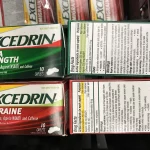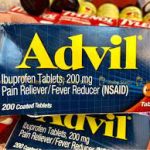How Long Does Alcohol Stay In Your System?

Alcohol is among the most used drugs, plays a large role in many societies and cultures around the world, and greatly impacts public health. More people over age 12 in the United States have used alcohol in the past year than any other drug or tobacco product, and alcohol use disorder is the most common type of substance use disorder in the United States.
Alcohol is a drug classified as a Central Nervous System (CNS) depressant, which means that drinking alcohol slows down brain functioning, neural activity, and further reduces the functioning of various vital functions in the body. This is due to the increased production of the inhibitory neurotransmitter, gamma-aminobutyric acid, or GABA. When someone consumes large quantities of alcohol, specifically more than the body is equipped to process, the result is depressant effects. Some of the many depressant effects from alcohol include:
- Delayed reaction time
- Cognitive impairments
- Slurred speech
- Unsteady gait
- Poor coordination or lack of motor skills
- Distorted perceptions
- Lessened inhibitions
- Distorted judgment
- Sedation
Although alcohol is clinically classified as a depressant, it also is proven to have stimulant effects depending on the amount and rate at which the alcohol is consumed. In small quantities, alcohol is more likely to result in stimulatory effects. These stimulatory effects are often the effects many people seek when they drink alcohol. Some of the stimulatory effects of alcohol include:
- Talkativeness
- Over-confidence
- Improvements in mood
- Increased blood pressure
- Increased heart rate
- Euphoria
When a person consumes larger quantities of alcohol, specifically more than the body is equipped to process, the drinker is more likely to experience the depressant effects of alcohol. Whether drinking beer, wine, or liquor, the amount used can drastically impact whether the user experiences depressant or stimulant effects.
According to a study conducted by Behavioral Neurobiology of Alcohol Addiction, there is a higher risk of developing an alcohol use disorder, also referred to as alcoholism, in people who experience a greater stimulant response after consuming alcohol. Those who do not have a risk for alcohol dependence are more likely to experience a greater sedative response. There are other genetic, environmental, and familial factors that influence whether an individual will develop an alcohol use disorder, however, all of these factors may play a role in the development of alcoholism.
What is BAC?
Blood Alcohol Concentration (BAC) refers to the percent of alcohol (ethyl alcohol or ethanol) in a person’s bloodstream. A BAC of 10% means that an individual’s blood supply contains one part alcohol for every 1000 parts of blood.
Once alcohol is in your bloodstream, it is carried to all organs of your body. In the majority of healthy people, blood circulates through the body in 90 seconds, thereby allowing alcohol to affect your brain and all other organs in a short amount of time. The full effects of a drink are felt within 15 to 45 minutes depending on the speed of absorption.
Alcohol Metabolism
The body considers alcohol as a toxin that must be neutralized or eliminated from the body. Ten percent of alcohol is eliminated through sweat, breath, and urine. Alcohol is volatile (will evaporate in air), so when alcohol in the blood comes in contact with air in the alveoli of the lungs, it can be transferred out of the body through breath.
The liver is the primary organ responsible for the detoxification of alcohol. Liver cells produce the enzyme alcohol dehydrogenase which breaks alcohol into ketones at a rate of about 0.015 g/100mL/hour (reduces BAC by 0.015 per hour).
Nothing will speed up the rate of detoxification, but the effective metabolism of alcohol can be limited by medications and liver damage. When the rate of consumption exceeds the rate of detoxification, BAC will continue to rise.
How long does alcohol stay in your system?
There are several factors that come into play when estimating how long alcohol will stay in your system because every patient has physiology unique to them. Here are some major factors you should consider when trying to understand how long alcohol will stay in your body:
• Age: Typically, the younger you are, the more efficient your body functions are. The more efficient your body functions, the faster alcohol will be removed from your system.
• Body height/weight/fat: The less you weigh, the more you will be affected by a given amount of alcohol. For people of the same weight, even the same gender, individuals with a lower percentage of body fat will have lower BAC’s than those with a higher percentage of body fat.
• Genetics: Genes predispose people to different metabolic functions, which is a key factor in how your body processes drugs like alcohol. For this reason, your genetic makeup comes into play when estimating how long alcohol will remain in your system.
• Kidney and liver functions: The liver and kidneys eliminate everything you ingest, and alcohol is no exception. If your liver or kidneys are damaged, it will most likely take longer for your body to remove the alcohol from your system.
• Metabolism: Your metabolism determines how quickly you process foods, liquids, and drugs such as alcohol. If your metabolism is slow, it will take longer for your body to process and eliminate alcohol from its system than for someone with a fast metabolism.
• Usage frequency: The longer you have been taking alcohol, the longer it will remain in your system. For example, it will take longer for someone who has taken alcohol for several years to remove alcohol from the body than someone who has only been taking alcohol for a few months.
Alcohol leaves the body at an average rate of 0.015 g/100mL/hour, which is the same as reducing your BAC level by 0.015 per hour. For men, this is usually a rate of about one standard drink per hour. In general, it takes one hour for each unit of alcohol to leave your body – this means if you had eight pints of ordinary strength beer and stopped drinking at midnight, all of the alcohol would not be eliminated from your body until about 4 pm the following day but the elimination may vary based on multiple factors already stated above.
Alcohol detection tests can measure alcohol in the blood for up to 6 hours, on the breath for 12 to 24 hours, urine for 12 to 24 hours (72 or more hours with more advanced detection methods), saliva for 12 to 24 hours, and hair for up to 90 days.
Example: At an average rate of -0.015/hr, how long would it take someone with a BAC of 0.20 to sober up?
| Time | Activity | BAC Level |
| 2:00 a.m. | In bed, dizzy and disoriented | .200 |
| 3:00 a.m. | Nauseous, unable to sleep | .185 |
| 4:00 a.m. | Very restless | .170 |
| 5:00 a.m. | Sleeping, but not well | .155 |
| 6:00 a.m. | Sleep | .140 |
| 7:00 a.m. | Get up for class with a headache | .125 |
| 8:00 a.m. | Drive to school, risk DUI or worse | .110 |
| 9:00 a.m. | In class, trouble focusing on lecture | .095 |
| 10:00 a.m. | Judgment still impaired | .080 |
| 11:00 a.m. | Mind still foggy, fatigued | .065 |
| 12:00 p.m. | Not hungry, cottonmouth | .050 |
| 1:00 p.m. | In afternoon class, still unfocused | .035 |
| 2:00 p.m. | Head cleaning | .020 |
| 3:00 p.m. | Feeling a little better | .005 |
| 4:00 p.m. | Sober at last, but not fully recovered | .000 |
Can You Speed Up This Process?
Once alcohol is in the bloodstream, it can only be eliminated by the enzyme alcohol dehydrogenase, sweat, urine, and breath. Drinking water and sleeping will not speed up the process. Coffee, energy drinks, and a cold shower will not sober you up faster. These might make you feel more awake, but caffeine and cold showers will not pull alcohol out of the blood – and thus will not lower your BAC level.





